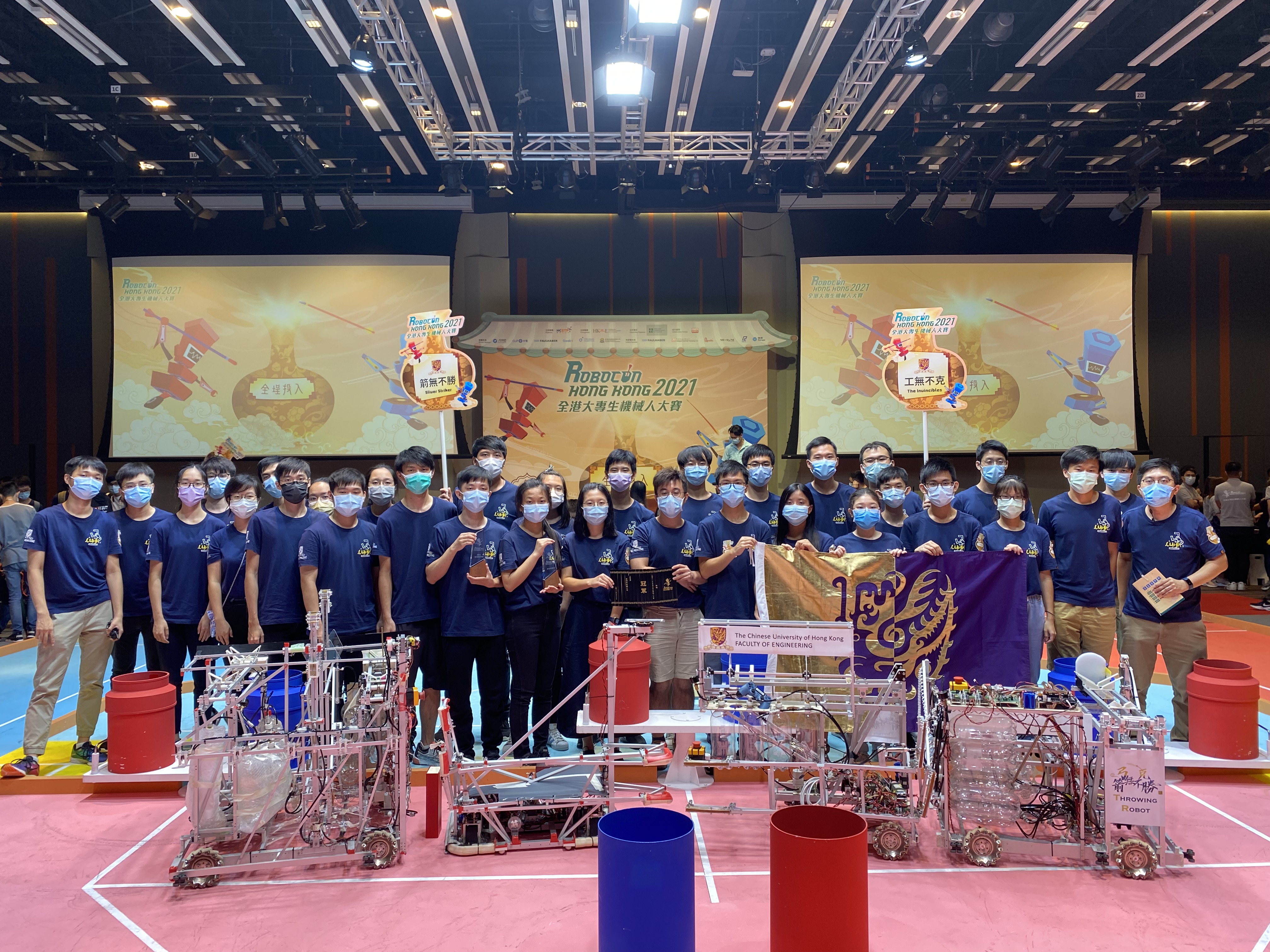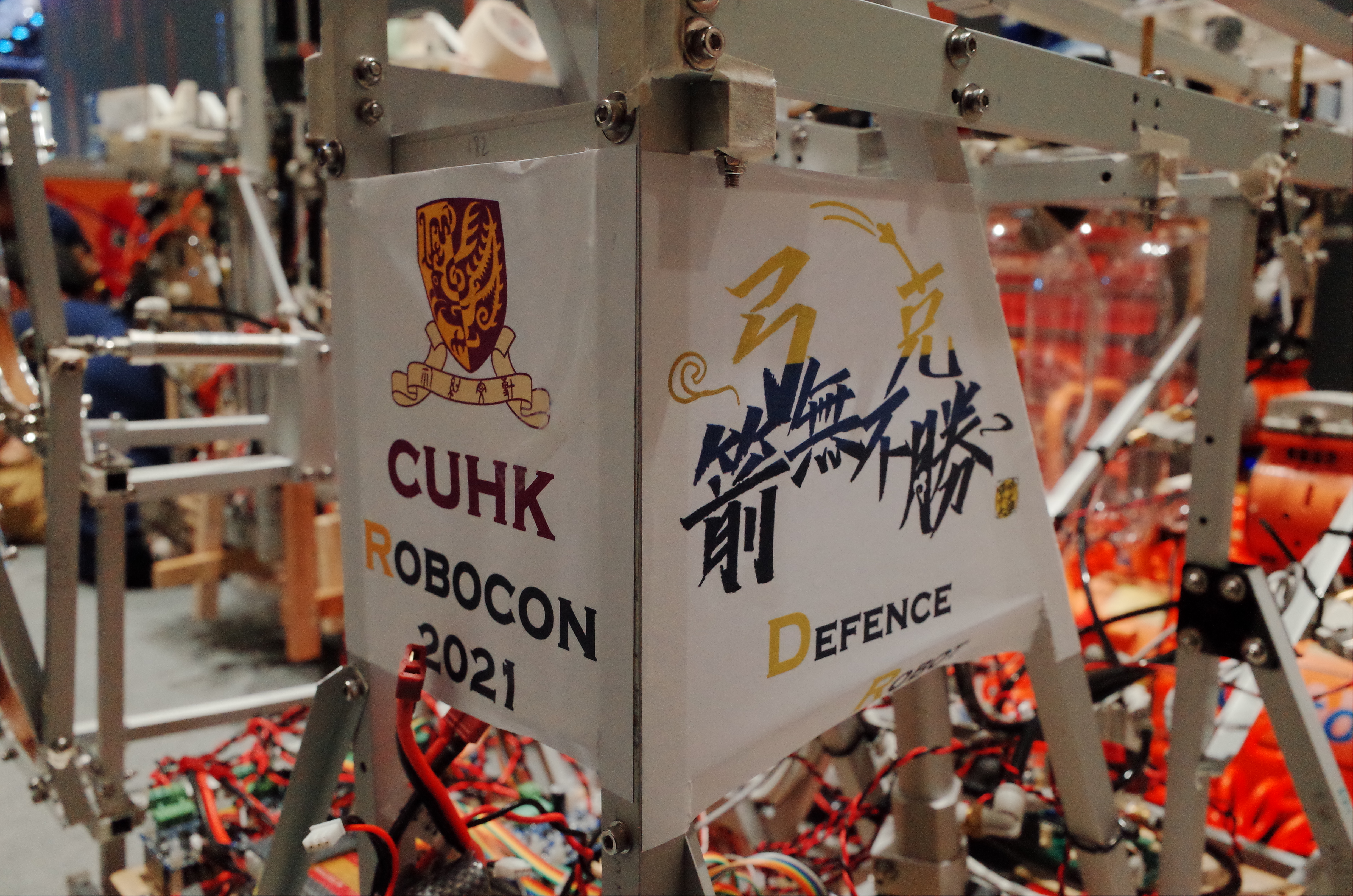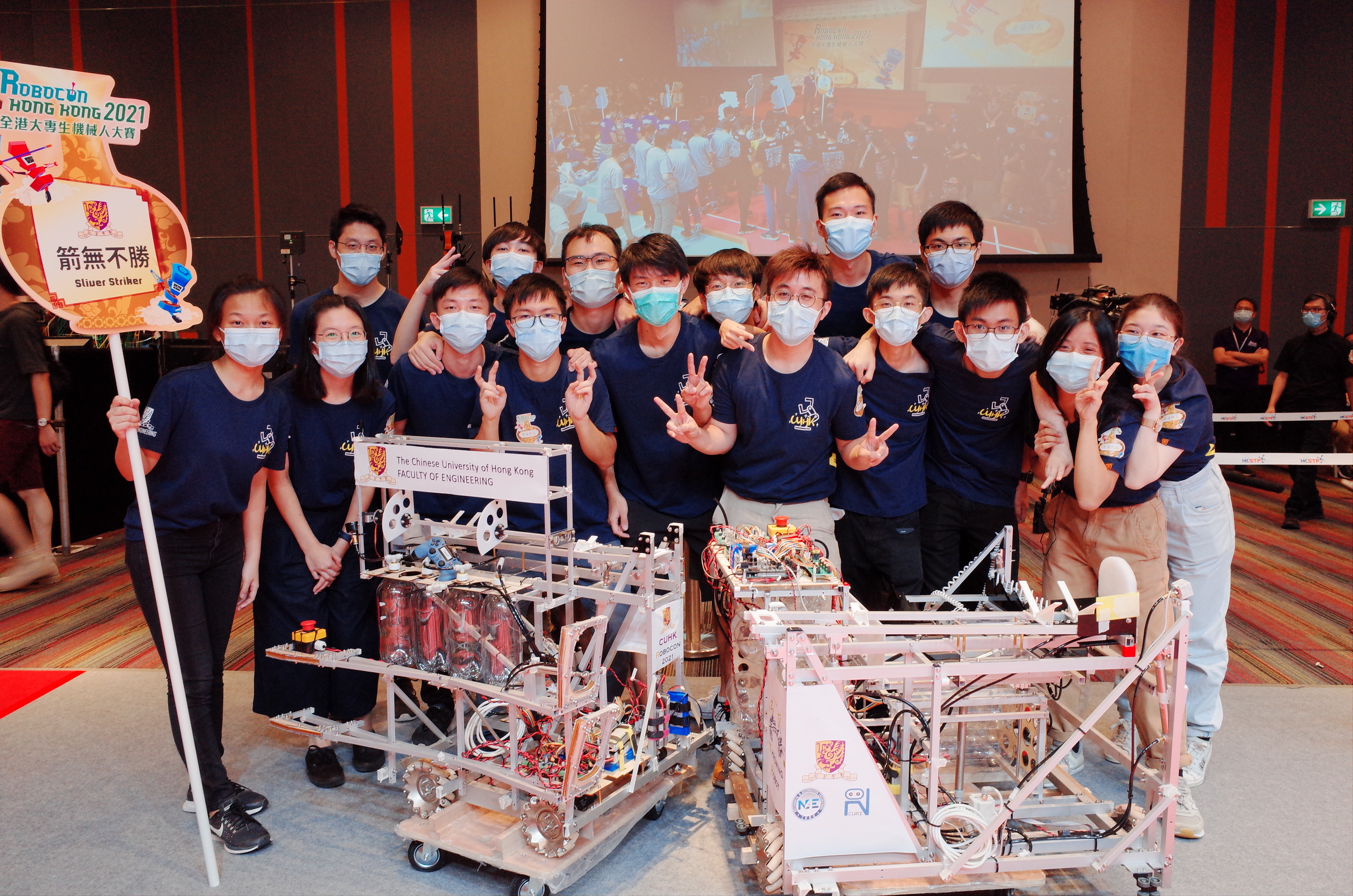The robotics team of the Faculty of Engineering, CUHK has been crowned Champion in the Robocon 2021 Hong Kong contest. The team can once again represent Hong Kong to win glory, after its success in the 2019 Asia-Pacific Robocon Contest. The 2021 Hong Kong competition was held on June 20 at the Hong Kong Science Park. There were 13 student teams from 7 higher institutions. Two CUHK teams, Silver Strike and The Invincible, joined the game. “Throwing Arrows in the Pot”, inspired by ancient archery in China, is the theme of this year’s competition. Each team is required to design a Throwing Robot (TR) and a Defence Robot (DR) to compete with the opposing teams. TR is controlled to throw arrows into the pots that belong to them, while the DR is responsible for spinning tables that hold the pots to prevent the opponent from scoring. The final score is calculated based on the number of arrows thrown into those pots within the 3-minute game. The team with the highest score or which has obtained “Great Victory” (2 arrows in each of the five pots) wins. After multiple rounds of elimination, both CUHK teams entered the semi-finals, while Sliver Strike became the finalist and took the record for the fastest team to achieve Great Victory. In the final game, Sliver Strike competed against The Hong Kong University of Science and Technology (HKUST), and both were crowned co-champion by the organiser. Sliver Strike also won the Best Performance and the Best Team Spirit Award. The ABU Asia-Pacific Robot Contest 2021 will be held in Qingdao, China. Proactive engagement and application of various robotic technologies by students KWOK Lam Him, who studies the Artificial Intelligence Programme, was a newcomer and the DR handler of team Sliver Strick. “It took us more than half a year to design, build and perfect the robots, and we worked overnight many times. The entire process was both mentally and physically challenging. The competition required a lot of teamwork. There was a high degree of cooperation between teammates responsible for the mechanical and automation design, electronics, as well as those who controlled the robots. This is our key to winning this competition”, KWOK said. Another member of team Sliver Strike, CHAN Yi Man from the Engineering programme, recalled her experience in the competition. “To design a robot that can throw arrows accurately is a very challenging task, with multiple disciplines including calculation of shooting angle, robot construction drawings and various automation designs. Since most of our teammates are newly recruited this year, we basically started learning from scratch. The most challenging part was definitely designing and making the robot in a week. Although we worked in shifts and spent sleepless nights, some members even attended internships during that period. All the blood, sweat and tears were worth it.” This year, some of the members are from other faculties, including four medical students, as well as a physics and an actuarial analysis student. Among them, a year 3 medical student FENG Yalei has joined the robotics team for three years. She said, “The advances of medical technology rely heavily on engineering. Robocon provides me with an opportunity for cross-disciplinary learning, not only to satisfy my interest in robotics but also further my personal and career development. I also felt the passion of my teammates, as well as their perseverance in innovation and knowledge preservation, all of which are essential elements of success, regardless of profession.” |
|













